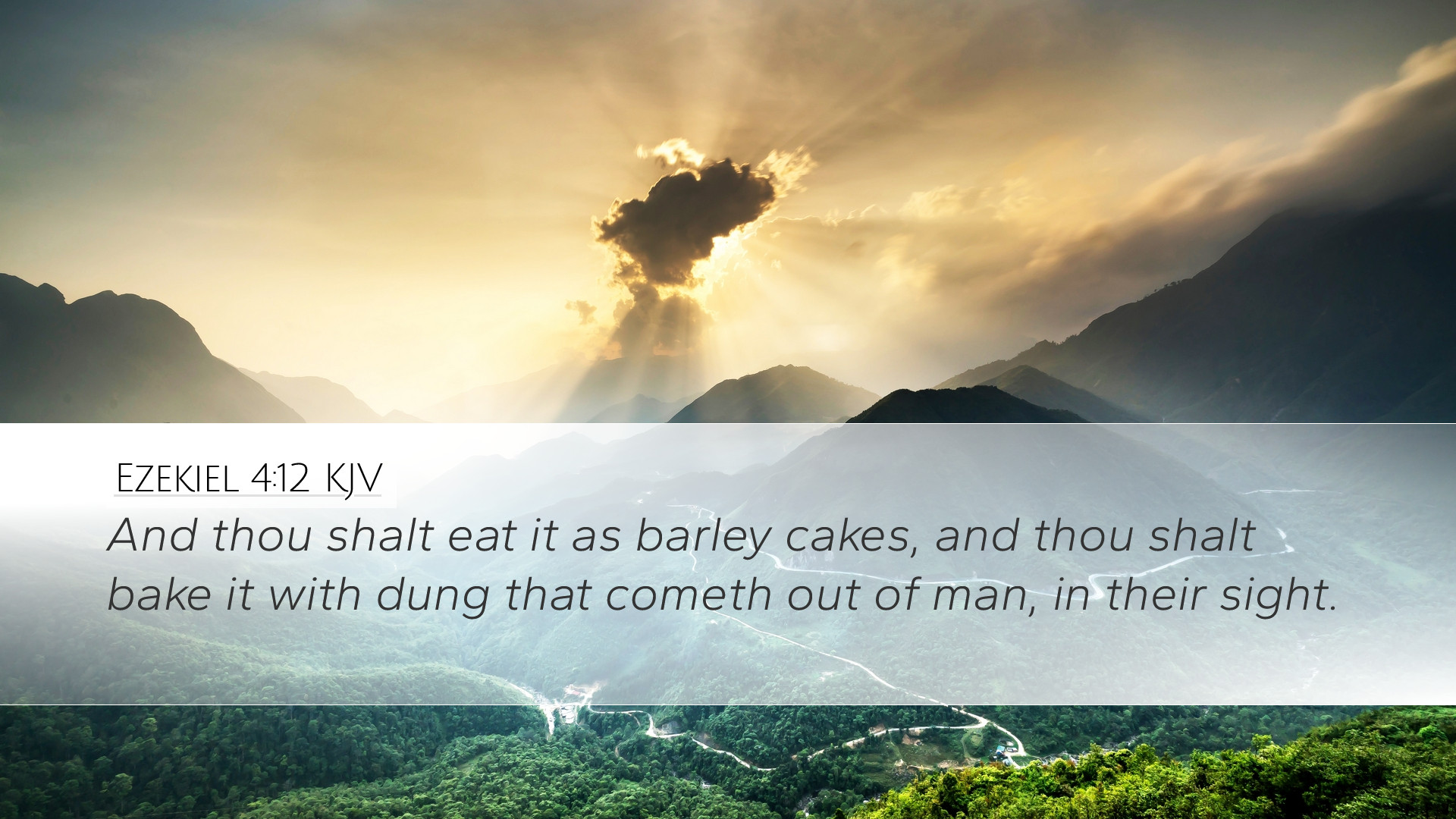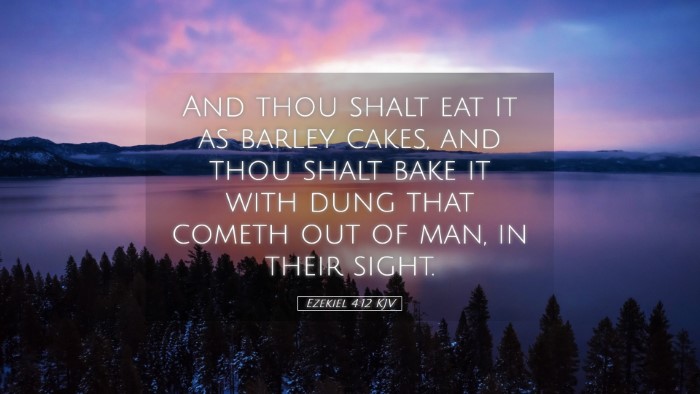Ezekiel 4:12 Commentary
Ezekiel 4:12 states: "And thou shalt eat it as barley cakes, and thou shalt bake it with dung that cometh out of man, in their sight." This verse provides a vivid and challenging illustration of the depths of Israel's coming judgment. The specific instruction to Ezekiel to prepare his food in such a manner is rich in theological implications and warrants deep exploration.
Context and Background
Ezekiel, a prophet during the Babylonian exile, was called to deliver messages of impending judgment and eventual restoration. His prophetic ministry was characterized by symbolic acts and vivid imagery intended to communicate the severity of Israel's sin and the certainty of God's judgment. The verse in focus is situated within a larger prophetic act in which Ezekiel is to illustrate the siege of Jerusalem.
Symbolism of the Bread
The bread that Ezekiel is instructed to eat symbolizes scarcity and desperation. Barley, often associated with the poorer classes, indicates that the people of Jerusalem would face severe deprivation. Commentators like Matthew Henry note that barley cakes were a staple of the impoverished and reflect the dire circumstances that would envelop the nation.
Implications of Human Dung
The use of human dung as fuel for baking the bread carries profound symbolic significance. Albert Barnes elaborates that this act represents the ultimate defilement and degradation associated with the siege and the resulting suffering. The fact that Ezekiel was to do this "in their sight" emphasizes the public nature of the sign and was meant to shock the people into recognizing the seriousness of their rebellion against God.
Theological Reflections
This verse challenges readers to consider the gravity of sin and the holiness of God. Adam Clarke points out that God’s commands, no matter how shocking, are aimed at eliciting a reaction of repentance. The incorporation of dung reflects the extent to which sin can lead to degradation, both physically and spiritually. It highlights the stark reality of Israel's idolatry and unfaithfulness, which had made their state before God utterly abominable.
God’s Communication through Symbols
Ezekiel's prophetic actions serve as a powerful reminder that God often communicates through signs that challenge human sensibilities. The bizarre and offensive nature of Ezekiel's task serves a dual purpose: it illustrates the seriousness of the situation while also providing a prophetic call to repentance. This episode reminds pastors and theologians to be aware that God's messages may not always come in forms that are easy to digest or understand.
Pastoral Applications
For pastors and theological educators, Ezekiel 4:12 serves as a reminder of the weight of prophetic ministry. Just as Ezekiel was required to embody the message of judgment, so too must ministers today be willing to confront difficult truths within their congregations. The radical dietary restriction speaks to the need for sacrificial living and a call to identify with the plight of those who suffer as a result of sin.
- Embodiment of Message: Just as Ezekiel acted out the message, pastors are called to embody the truths they proclaim.
- Confronting Sin: The graphic nature of this command serves as a call to confront sin boldly, even when the truth is difficult to hear.
- The Urgency of Repentance: The prophetic act illustrates the urgent need for repentance in the face of spiritual barrenness.
Summary and Conclusion
Ezekiel 4:12 is a profound verse that encapsulates God's judgment and the severe consequences of sin. Commentaries from Henry, Barnes, and Clarke converge on the understanding that God's holistic communication through dramatic acts is intended both for warning and instruction. This passage compels pastors, students, and scholars alike to reflect on the nature of sin, the importance of repentance, and the compelling nature of prophetic ministry. The message is clear: even in the midst of judgment, there is hope for restoration, contingent upon a return to faithful obedience to God.


